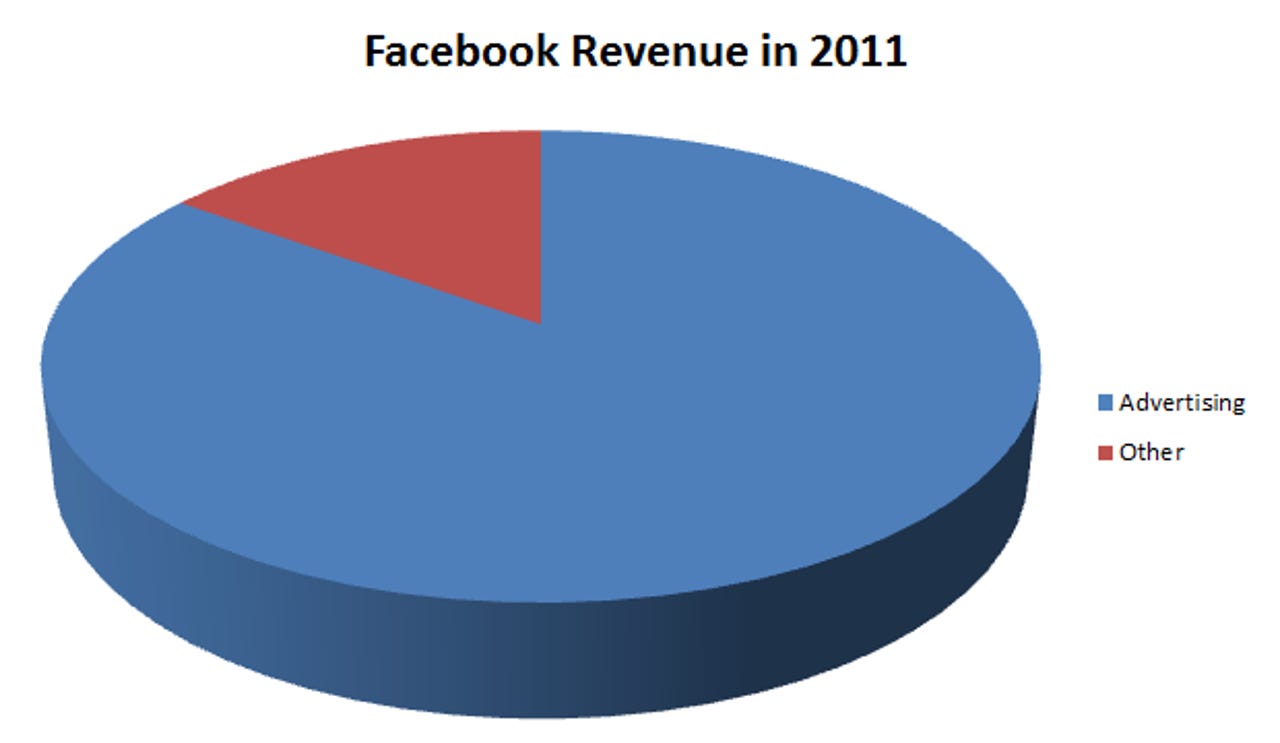Facebook: where does the money come from?

Last week, my colleague Ed Bott posted an excellent article titled "Microsoft, Apple, and Google: where does the money come from?." Now that Facebook has filed for its $5 billion initial public offering (IPO), I think it's time to mash those numbers and pictures together, and spit out some graphs.
Here's an excerpt from the Summary Risk Factors sections of Facebook's filing with the U.S. Securities and Exchange Commission (SEC): "We generate a substantial majority of our revenue from advertising. The loss of advertisers, or reduction in spending by advertisers with Facebook, could seriously harm our business."
As you can see in the chart above, Facebook is an advertising company, just like Google. It therefore follows that out of the three giants listed by Bott, the social networking giant is closest to the search giant. If you were wondering why the two always seem to be at each other's throat, this is why.
That being said, Facebook is already better differentiated than Google. It's not exactly a fair comparison given that the latter makes so much more money than the former, plus the former is still trying to figure how much money it can really make from advertising. Still, it's definitely good news for Facebook.
As you can see in my second chart, Facebook's "other" source of revenue is already steadily growing. In the SEC filing, this new revenue stream is referred to as "Payments and other fees." Breaking it down further into quarters, the growth is even more apparent in this third chart (last quarter, the breakdown was 83.4 percent advertising and 16.6 percent "other"):
While Menlo Park doesn't explicitly say so, the majority of this revenue comes from Facebook Credits. To put the data into perspective, a quick look back is necessary.
Facebook Credits launched as an alpha in May 2009. The beta stage started in February 2010 and ended with a final version in January 2011. As of July 2011, all Facebook game developers are required to only process payments through Facebook Credits. It is not (yet?) a mandatory payment option for Facebook apps. In October 2011, Facebook Credits became available as a payment option to mobile app developers and Facebook began testing Facebook Credits for websites. As of November 2011, Facebook supports 80+ payment methods in 50+ countries around the world (full list).
Okay, nice history lesson, but what does this mean for revenue? Facebook takes a 30 percent cut of all revenue earned through Facebook Credits, leaving developers with the remaining 70 percent. It's been known for a while that the virtual currency appears to be growing as a percentage of Facebook's overall revenue, but only now do we have the official numbers. There's a huge potential here: if Facebook Credits for websites takes off, Menlo Park won't have to rely mainly on advertising.
See also:
